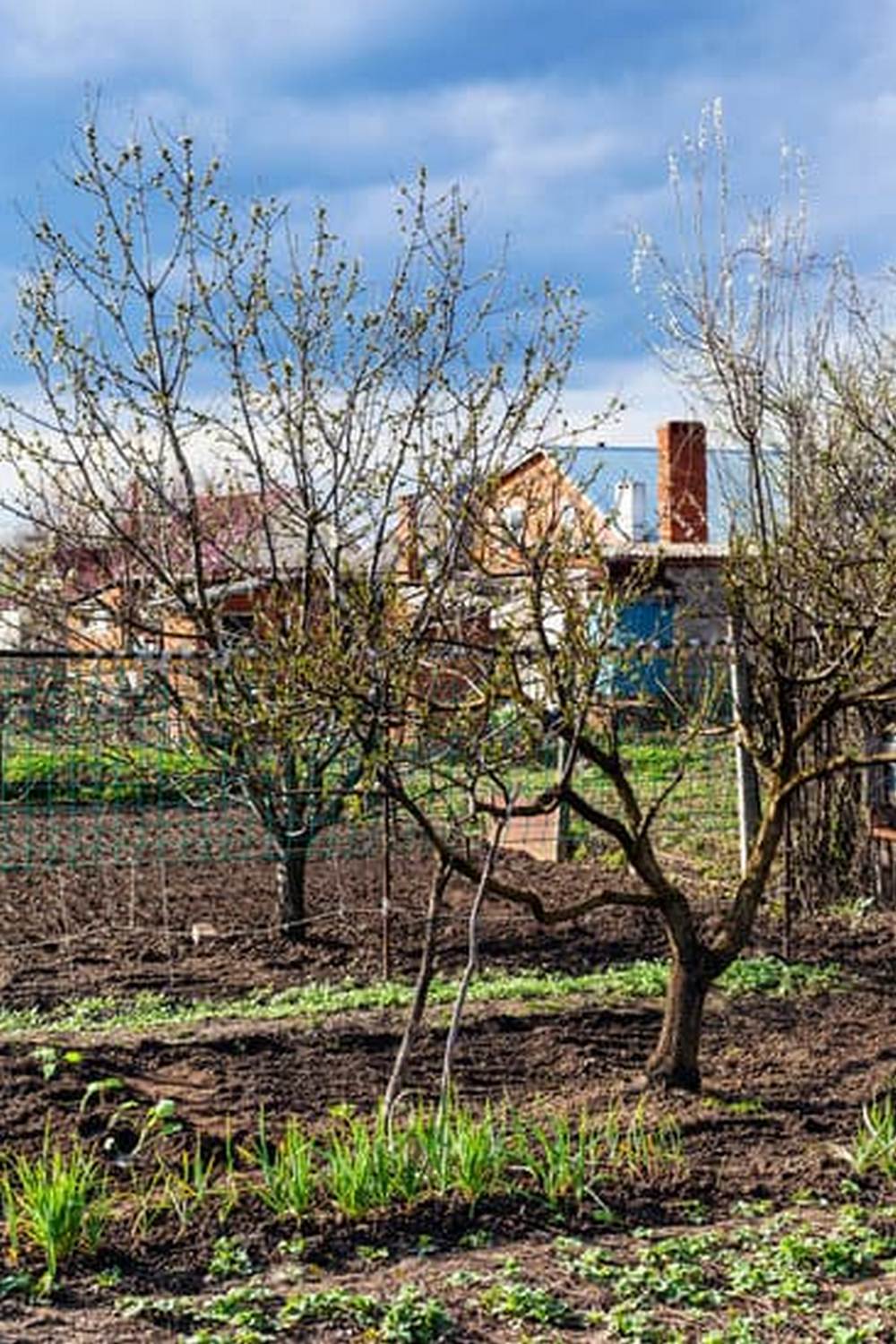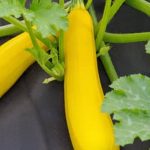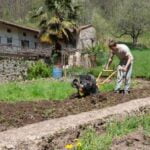Looking to improve your vegetable garden while also promoting sustainable water usage? Using reclaimed water for vegetable gardens is not only an environmentally friendly choice, but it also offers a range of benefits for your plants. Reclaimed water, which is treated wastewater that is safe for non-potable uses, can provide a cost-effective and sustainable alternative to traditional irrigation methods.
By incorporating reclaimed water into your gardening practices, you can contribute to water conservation efforts while still ensuring that your vegetable garden thrives. Understanding the benefits of using this type of water in your garden, as well as learning how to safely and effectively implement it, can make a significant impact on the success of your gardening endeavors.
In this article, we will explore the advantages of using reclaimed water in vegetable gardens and discuss the importance of water conservation in gardening. We will also provide tips on how to properly irrigate vegetable gardens with reclaimed water, address common misconceptions about its use, and showcase successful case studies of thriving vegetable gardens that utilize reclaimed water. Lastly, we will highlight the significance of embracing reclaimed water as a valuable resource for sustainable vegetable gardening practices.
Understanding the Benefits of Using Reclaimed Water in Vegetable Gardens
Reclaimed water for vegetable gardens is a sustainable and cost-effective way to nourish plants while conserving valuable freshwater resources. By understanding the benefits of using reclaimed water in vegetable gardens, gardeners can make informed decisions about incorporating this practice into their gardening routines.
One major benefit of using reclaimed water for vegetable gardens is its environmental impact. Reclaimed water is often treated to remove contaminants and impurities, making it safe for non-potable uses such as irrigation. By using reclaimed water instead of freshwater from traditional sources, gardeners can help reduce the strain on local water supplies and minimize the need for energy-intensive purification processes.
In addition to its environmental benefits, reclaimed water offers practical advantages for vegetable gardens. It can provide a reliable and consistent source of irrigation, especially in regions where freshwater may be scarce or subject to restrictions. This can help ensure that vegetable plants receive the water they need to thrive, even during dry periods or droughts. Furthermore, using reclaimed water for vegetable gardens can also contribute to reducing overall utility costs for homeowners and communities.
Overall, the use of reclaimed water for vegetable gardens represents an opportunity to embrace sustainable practices while supporting healthy plant growth. By understanding these benefits, gardeners can explore the potential of reclaimed water as a valuable resource for their gardening needs.
The Importance of Water Conservation in Gardening
Water conservation is an essential aspect of gardening, especially when it comes to growing vegetables. With the increasing scarcity of water in many regions, it has become crucial for gardeners to find alternative sources of water that are sustainable and environmentally friendly. This is where reclaimed water for vegetable gardens plays a significant role.
Reclaimed water, also known as recycled or reused water, refers to treated wastewater that can be used for various purposes, including irrigation. Using reclaimed water for vegetable gardens not only helps in conserving precious freshwater resources but also reduces the strain on municipal water supplies. In addition, it provides a reliable and consistent source of water for gardeners, even during times of drought or water restrictions.
According to the Environmental Protection Agency (EPA), using reclaimed water for vegetable gardens can significantly reduce the demand for potable water and lower energy consumption associated with traditional irrigation methods. In fact, studies have shown that using reclaimed water can lead to improved plant growth and crop yield due to its nutrient-rich composition.
Therefore, embracing reclaimed water as a valuable resource for vegetable gardens is not only environmentally responsible but also beneficial for the overall health and productivity of the garden.
| Statistic | Data |
|---|---|
| Reduction in potable water demand | 30-50% |
| Energy savings from reduced irrigation | 20-50% |
How to Safely Use Reclaimed Water in Vegetable Gardens
Using reclaimed water for vegetable gardens can be an eco-friendly and cost-effective way to ensure adequate irrigation while also promoting sustainability. However, it is crucial to understand the proper methods for safely using reclaimed water in vegetable gardens to prevent potential risks and maximize its benefits.
Here are some important guidelines to follow when using reclaimed water for vegetable gardens:
- Understanding the quality of the reclaimed water: Before using reclaimed water for your vegetable garden, it is essential to have it tested for any contaminants or pathogens. This will help determine if additional treatment or precautions are necessary.
- Implementing a drip irrigation system: Using a drip irrigation system can help minimize direct contact between the reclaimed water and the edible parts of your vegetables. This reduces the risk of contamination and promotes more efficient water usage.
- Applying the right amount of water: It is important to calculate the appropriate amount of reclaimed water needed for your vegetable garden based on factors such as soil type, weather conditions, and plant requirements. Over-irrigation can lead to nutrient leaching and potential runoff issues.
By following these guidelines, you can safely incorporate reclaimed water into your vegetable gardening practices, ensuring that your plants receive adequate hydration while minimizing potential health risks. Additionally, adhering to these best practices will contribute to overall water conservation efforts and promote sustainable gardening methods.
Tips for Properly Irrigating Vegetable Gardens With Reclaimed Water
Properly irrigating vegetable gardens with reclaimed water is essential to ensure the health and productivity of the plants while also promoting sustainability. Here are some tips for effectively using reclaimed water in your garden:
- Check local regulations: Before using reclaimed water for your vegetable garden, make sure to check with your local regulations and guidelines. Different areas may have specific rules and requirements for using reclaimed water, so it’s important to be aware of any restrictions or recommendations.
- Invest in a suitable irrigation system: Installing a drip irrigation system is one of the best methods for using reclaimed water in vegetable gardens. This type of system delivers water directly to the base of the plants, minimizing water waste and reducing the risk of overwatering.
- Monitor soil moisture levels: It’s important to regularly monitor the moisture levels in your soil when using reclaimed water. This will help you determine if your plants are receiving enough water or if adjustments need to be made to your irrigation schedule.
Incorporating these tips into your vegetable gardening routine can help you maximize the benefits of reclaimed water while ensuring that your plants receive the necessary hydration for healthy growth.
Additionally, it’s important to consider the quality of reclaimed water being used in your garden. Investing in a filtration system or working with a professional to test and treat the reclaimed water can help ensure that it is safe and free from any harmful contaminants before it reaches your vegetable garden. By taking these precautions, you can confidently embrace reclaimed water as a valuable resource for sustainable and thriving vegetable gardens.
Common Misconceptions About Using Reclaimed Water for Vegetable Gardens
When it comes to using reclaimed water for vegetable gardens, there are often misconceptions and concerns that may prevent gardeners from utilizing this valuable resource. However, it is important to address these misconceptions in order to fully understand the benefits and safety of using reclaimed water in vegetable gardening.
Health and Safety Concerns
One common misconception about using reclaimed water for vegetable gardens is the concern for potential health risks. Some individuals may worry that using reclaimed water can lead to the contamination of their vegetables with harmful substances. However, when proper guidelines are followed, such as those set by the Environmental Protection Agency (EPA), reclaimed water can be safely used for irrigation without posing any health risks.
Impact on Vegetable Quality
Another misconception is the belief that vegetables grown with reclaimed water will be of lower quality or have a different taste. In fact, numerous studies have shown that when reclaimed water is used responsibly and in accordance with regulations, there is no negative impact on the quality or taste of the vegetables. With proper irrigation practices and soil management, vegetables can thrive and maintain their high quality when irrigated with reclaimed water.
Environmental Concerns
Some gardeners may also have concerns about the environmental impact of using reclaimed water in vegetable gardens. They may worry that using this type of water could harm the surrounding ecosystem or contribute to pollution. However, when used responsibly and within regulations, reclaimed water can actually help conserve freshwater resources and alleviate strain on natural water sources. This makes it a more sustainable choice for vegetable gardening in regions where water scarcity is a concern.
Case Studies
Case Study 1: Community Garden in Urban Area
In a bustling urban area where water conservation is vital, a community garden has successfully implemented the use of reclaimed water for their vegetable patches. By partnering with local water treatment facilities, the garden has access to treated wastewater that is safe for irrigation. The results have been impressive, with thriving crops and bountiful harvests. This case study serves as an inspiration for other urban gardens to consider incorporating reclaimed water into their watering practices.
Case Study 2: Family Farm in Arid Region
In a region prone to drought and water scarcity, a family farm has embraced sustainable practices by using reclaimed water for their vegetable gardens. Through the installation of a drip irrigation system specifically designed for reclaimed water usage, the farm has been able to cultivate a variety of vegetables without putting additional strain on the already limited water supply.
The success of this approach has not only yielded healthy produce but also served as a model for other farms in the area looking to conserve water resources.
Case Study 3: School Garden Project
Educational institutions are also getting in on the benefits of using reclaimed water for vegetable gardens. One particular school garden project has integrated lessons on sustainability and environmental stewardship by utilizing treated wastewater from their campus facilities for irrigation purposes. Through careful monitoring and adherence to safety guidelines, the project has demonstrated that reclaimed water can effectively support lush and productive vegetable gardens while instilling important values in students.
These case studies highlight how diverse settings and communities can thrive by incorporating reclaimed water into their vegetable gardening practices. From urban community gardens to rural farms and educational projects, these real-world examples showcase the potential of using treated wastewater as a valuable resource for cultivating healthy and sustainable vegetable gardens.
Incorporating Sustainable Practices in Vegetable Gardening With Reclaimed Water
In recent years, there has been a growing awareness of the benefits of using reclaimed water for vegetable gardens. Reclaimed water, also known as recycled water, is wastewater that has been treated to remove impurities and is then used for various purposes, including irrigation. This sustainable practice not only helps conserve precious freshwater resources but also provides a nutrient-rich and cost-effective alternative for watering vegetable gardens.
One of the key benefits of using reclaimed water for vegetable gardens is its nutrient content. Unlike tap water, which may lack essential nutrients, reclaimed water often contains beneficial elements such as nitrogen and phosphorus that can promote plant growth and improve soil fertility. In addition to providing essential nutrients, using reclaimed water can also reduce the need for chemical fertilizers, further contributing to sustainable gardening practices.
Another important advantage of incorporating reclaimed water into vegetable gardening is its positive impact on the environment. By utilizing recycled water for irrigation purposes, gardeners can help alleviate the strain on freshwater sources and reduce the amount of wastewater that would otherwise be discharged into rivers and oceans. This not only conserves natural resources but also minimizes pollution, making it a more eco-friendly option for sustaining healthy vegetable gardens.
| Benefits of Using Reclaimed Water | Impact |
|---|---|
| Provides essential nutrients | Promotes plant growth and improves soil fertility |
| Reduces the need for chemical fertilizers | Contributes to sustainable gardening practices |
| Conserves freshwater sources | Minimizes pollution in rivers and oceans |
Conclusion
In conclusion, it is evident that reclaimed water can be a valuable resource for vegetable gardens. By understanding the benefits of using reclaimed water, gardeners can make significant contributions to water conservation efforts while still maintaining healthy and productive vegetable gardens. It is crucial for gardeners to safely use reclaimed water, following proper guidelines and best practices to ensure the health and safety of their crops as well as the environment.
It is important to recognize the significance of water conservation in gardening, especially in regions experiencing drought or limited water resources. Reclaimed water offers an opportunity to reduce reliance on freshwater sources and provide an alternative, sustainable option for irrigation. By embracing reclaimed water as a valuable resource, gardeners can contribute to environmental sustainability while enjoying the bountiful harvests of their vegetable gardens.
Incorporating sustainable practices in vegetable gardening with reclaimed water not only benefits individual gardeners but also has broader positive impacts on the community and the environment. As demonstrated by successful case studies, utilizing reclaimed water for vegetable gardens can lead to thriving crops and reduced strain on freshwater supplies.
With proper education, regulation, and implementation, reclaimed water can play a significant role in promoting sustainable agriculture practices and addressing the global challenge of water scarcity. Embracing reclaimed water for vegetable gardens presents an opportunity for both personal and collective action towards a more sustainable future.
Frequently Asked Questions
Is It Safe to Eat Vegetables Grown With Reclaimed Water?
Eating vegetables grown with reclaimed water can be safe as long as proper treatment and monitoring processes are in place. The use of reclaimed water for irrigation is regulated to ensure that any potential contaminants are within safe limits.
Is Reclaimed Water Safe for Plants?
Reclaimed water is generally safe for plants as it contains essential nutrients and minerals that can promote healthy growth. However, the quality of the reclaimed water must be carefully monitored to prevent any adverse effects on the plants.
What Are the Disadvantages of Reclaimed Water?
Some disadvantages of reclaimed water include the potential presence of pathogens or chemical contaminants if not treated properly. There may also be concerns about public perception and acceptance of using reclaimed water for certain purposes, despite its proven safety when properly treated.
Additionally, there can be higher infrastructure and operational costs associated with establishing and maintaining reclaimed water systems compared to traditional water sources.

If you’re looking to get into vegetable gardening, or are just looking for some tips on how to make your current garden better, then you’ve come to the right place! My name is Ethel and I have been gardening for years. In this blog, I’m going to share with you some of my best tips on how to create a successful vegetable garden.





